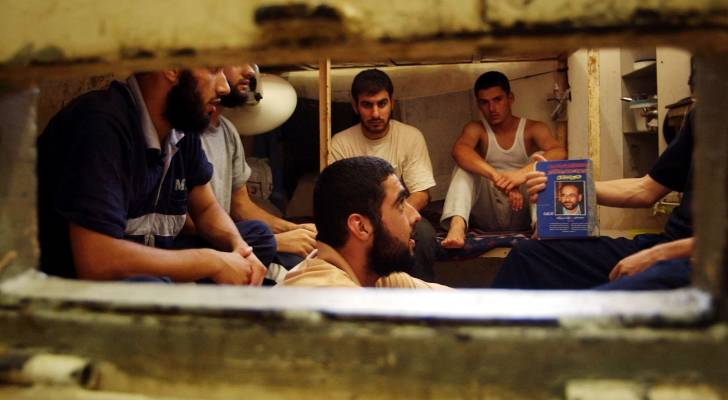Palestinian political prisoners sit in a prison cell in Ashkelon in 2004 (Credit: Reuters)
'Israel' blocks Red Cross from visiting Palestinian detainees labeled “unlawful combatants”
'Israel' has barred the International Committee of the Red Cross (ICRC) from visiting Palestinian political prisoners classified under the country’s “unlawful combatant” law, 'Israel’s' Defense Minister, Israel Katz, announced on Wednesday.
“The opinions presented to me leave no doubt that Red Cross visits to terrorists in prisons would seriously harm the state's security. The safety of the state and our citizens comes first,” Katz said in a statement released by his office.
The directive applies to several thousand detainees listed in an official attachment, effectively formalizing the restrictions that have been in place since the start of the war on Gaza.
Since that attack, the ICRC has largely been barred from accessing prisoners, except for pre-release interviews conducted under ceasefire and prisoner exchange arrangements.
The Association for Civil Rights in Israel (ACRI), which petitioned to grant the ICRC broader access to 'Israeli' prisons, noted that detainees are held in a mix of military detention centers and regular jails. According to ACRI, prior to the ceasefire that began on October 10, Israel’s Prison Service was holding 2,673 political prisoners categorized as unlawful combatants, hundreds of whom were released in exchange for captives held in Gaza.
Meanwhile, the 'Israeli' military accused Hamas of staging a search for the bodies of deceased captives to delay their return. Using drone footage as evidence, the military claimed that Hamas pre-positioned a body in front of ICRC staff, who had been facilitating the transfer of captives and political prisoners.
The ICRC clarified that its team was unaware the body had been staged ahead of its arrival, emphasizing that its neutral mandate “does not include unearthing of the bodies of the deceased.”
The organization described the staged discovery as “unacceptable”, stressing that “so much depends on this agreement being upheld.”




